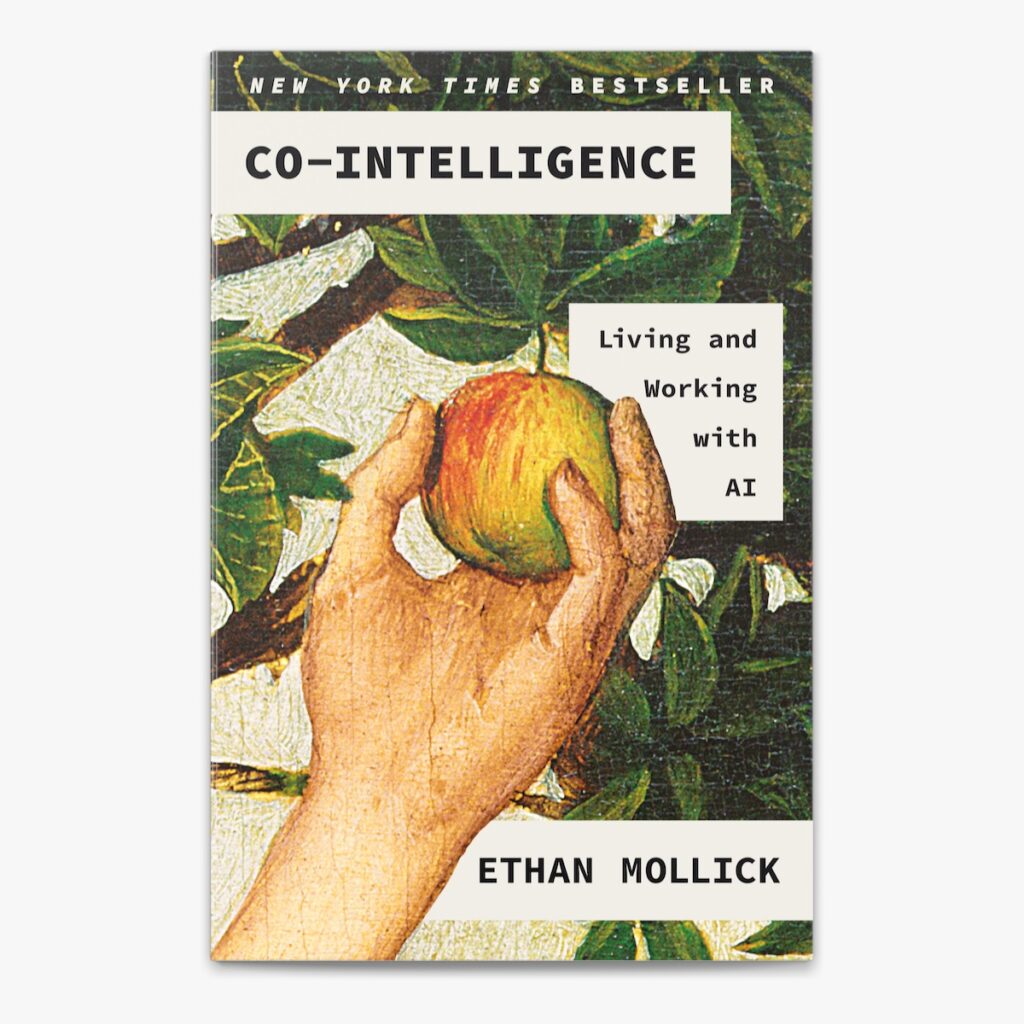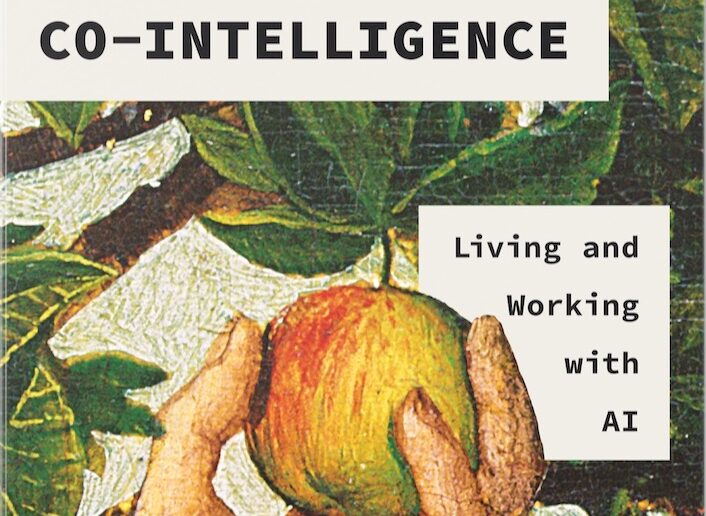I just finished Ethan Mollick’s excellent book Co-Intelligence: Living and Working with AI, which I’m sure I’ll be thinking about for awhile.
For the past two years, I’ve been following Mollick’s ruminations about AI on his blog “One Useful Thing.” As an educator actively experimenting with AI in his classroom, he has helped inform how I think about and use GenAI more than anyone else out there.
His book distills in a more accessible way a lot of complex ideas that he nerds out on in his blog. Some big takeaways for me:
- GenAI is not going away, so pining for return to a time before it existed is useless.
- GenAI needs regulation, careful consideration, and guardrails.
- GenAI may be the solution to the “2 Sigma Problem” in education — how to provide an individualized tutor for every single student.
- Our future is to become “centaurs” or “cyborgs” combining the best of humanity with the best of technology.
I love his four principles for working with AI:
- Always invite AI to the table (get used to using it for various situations)
- Be the human in the loop (impose limits and parameters)
- Treat AI like a person (but tell it what kind of person it is)
- Assume this is the worst version of AI that you will ever use
This corresponds to much of our advice on using AI in the classroom that we include in the course I authored for KQED Education “Partner with GenAI to Elevate Authentic Student Voice.” We encourage teachers to “tell the AI chatbot who it is” and to “give it clear Do’s and Don’ts” for example.
The book isn’t perfect. The discussion on misinformation and AI was too short and didn’t offer any real guidance on how people can find reliable sources in this confusing new media landscape. Artists and creators looking for guidance on how to contend with AI stealing their content and taking their jobs won’t find much relief. Young people are left wondering how they can best prepare for a workforce where entry level jobs are increasingly being handled by AI instead of humans.
I think that feeling of insecurity is intentional by Mollick. He seems to want us to be both aware of the dangers and excited about the possibilities of an AI-dominated future at the same time. Which seems like a good recipe for insomnia, if you ask me.
That said, I am someone who has always been attracted to the idea of the “cyborg.” I am not afraid of a world where technology becomes an inextricable part of how I engage with the world. As long as I am still in the driver’s seat.


